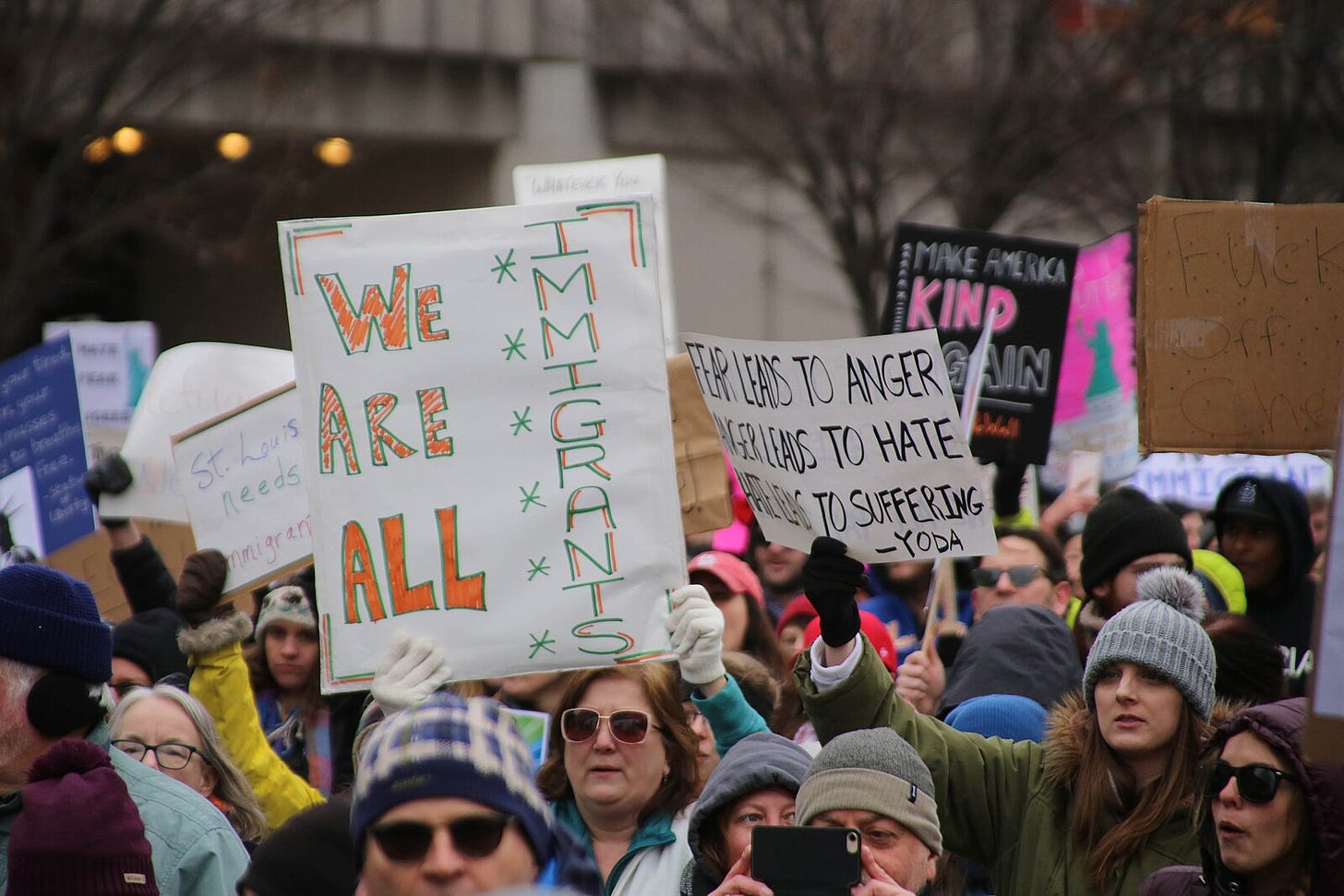The war on immigrants
How ICE's deportations and detentions have changed since Jan. 20, 2025.
“We are living like sardines in a jar.” “It is hell on earth.”
That’s how undocumented immigrants held at the Krome Detention Center in Miami, Florida describe conditions inside the facility to the Miami Herald, which has sparked growing protests from the local community. It comes as federal government officials tell CBS News Miami that some Immigration and Customs Enforcement (ICE) detention centers are experiencing overcrowding due to an increase in detainees from President Trump’s strict immigration policies.
A March report found that nearly 46,269 people were in ICE custody, despite the agency only having 41,500 beds.
In February, ICE averaged more than 600 arrests per day—more than double last year’s daily average of 255.
Unlike the Biden administration, President Trump has prioritized detaining noncitizens not just at the southern border but everywhere in the country, filling the detention capacity in places like the Krome Detention Center.
Additionally, fewer noncitizens are being released from these facilities because the administration ended a practice that allowed people who are not considered a threat to the community or a flight risk to be released in certain conditions. ICE has also stopped granting parole to detainees almost entirely in late February.
Data also shows that the proportion of detainees with no criminal charges has increased from 6% in mid-January to 16% in early March, despite the administration saying they are prioritizing the deportation of noncitizens who are criminals.
Among those detained without criminal charges are student visa holders—a significant shift in immigration policy from the previous administration.
Secretary of State Marco Rubio recently said that he has used the Immigration and Nationality Act (INA) to revoke the visas of more than 300 student visa holders. The INA grants the secretary of state the authority to revoke visas if a noncitizen is deemed a threat to U.S. foreign policy interests.
“It might be more than 300 at this point. We do it every day. Every time I find one of these lunatics, I take away their visas,” Rubio said.
One of those detained this week was a 30-year-old Rumeysa Ozturk, a Tufts University PhD student who was arrested by ICE officers in Somerville, Massachusetts, and swiftly transferred to a detention facility in Louisiana, despite a federal judge’s order not to remove her from the state without notice.
The Department of Homeland Security has accused her of spreading “terrorist” sentiment but has showcased no evidence or charged her with a crime. A federal judge temporarily blocked her deportation while reviewing its legality.
(Video via Storyful)
“She is a sweet girl. A meek girl. She doesn’t deserve this,” an anonymous TikTok user told TUT via direct messages.
The Times of India reported that university officials and hundreds of student visa holders received emails notifying them that their visas had been revoked under the INA. However, Zeteo reported that some students did not receive direct notifications and had to manually check their visa status. University staff, who are typically informed of revocations, have also been left in the dark—including in Ozturk’s case. Without being aware of their status, student visa holders can be detained, fined, or ineligible for future visas, per the email by the state department;
“On behalf of the United States Department of State, the Bureau of Consular Affairs Visa Office hereby informs you that additional information became available after your visa was issued. As a result, your F-1 visa with expiration date XXXXX was revoked in accordance with Section 221(i) of the United States Immigration and Nationality Act, as amended….
"Remaining in the United States without a lawful immigration status can result in fines, detention, and/or deportation. It may also make you ineligible for a future U.S. visa.”
Among the new reasons for revoking visas are social media violations, including posts that express “advocacy or sympathy for foreign terrorist organizations.” This crackdown is part of the AI-powered program “Catch and Revoke,” which reviews students’ social media activity to identify violations. These rules now require mandatory screenings of current and future student visa holders’ social media activity.
However, according to a memo obtained by independent journalist Ken Klippenstein, noncitizens’ credibility can also be questioned if they post content reflecting a “hostile attitude toward U.S. citizens or U.S. culture (including government, institutions, or founding principles).”
Advocacy groups, including the Council on American-Islamic Relations, warn that these measures and arrests have led to increased censorship and detentions of Muslim and Arab Americans. “This alarming act of repression is a direct assault on free speech and academic freedom,” the organization said in a statement about Ozturk’s arrest.
According to Zeteo, most student visa holders currently in ICE custody are from Muslim-majority countries.
“My family and I are so scared for people who look like us,” another anonymous TikTok user told TUT, who identified as a Muslim visa holder from Syria. “It seems like the issues Muslims care about are the ones that this government is looking at. How is this not a violation of our rights? Do we [immigrants] even have rights anymore?”


